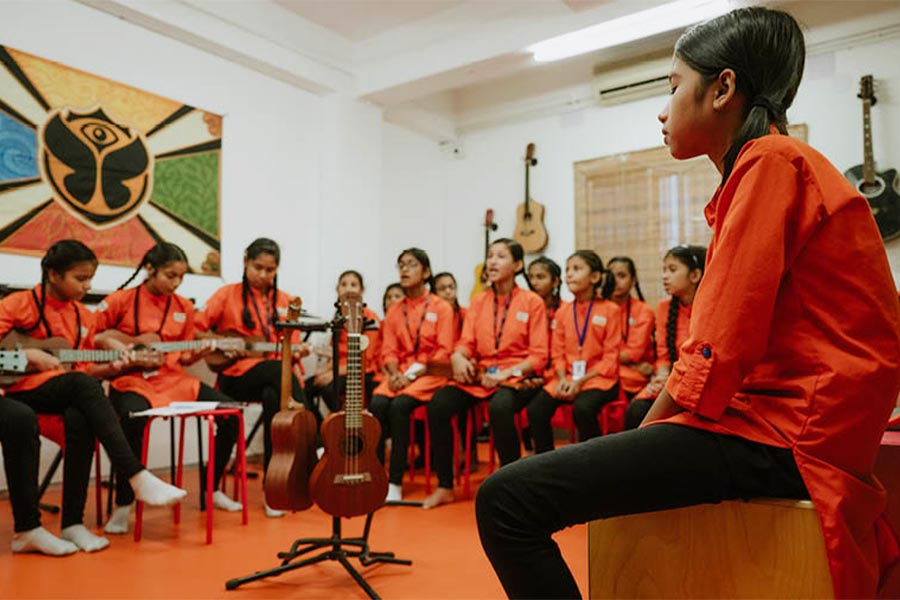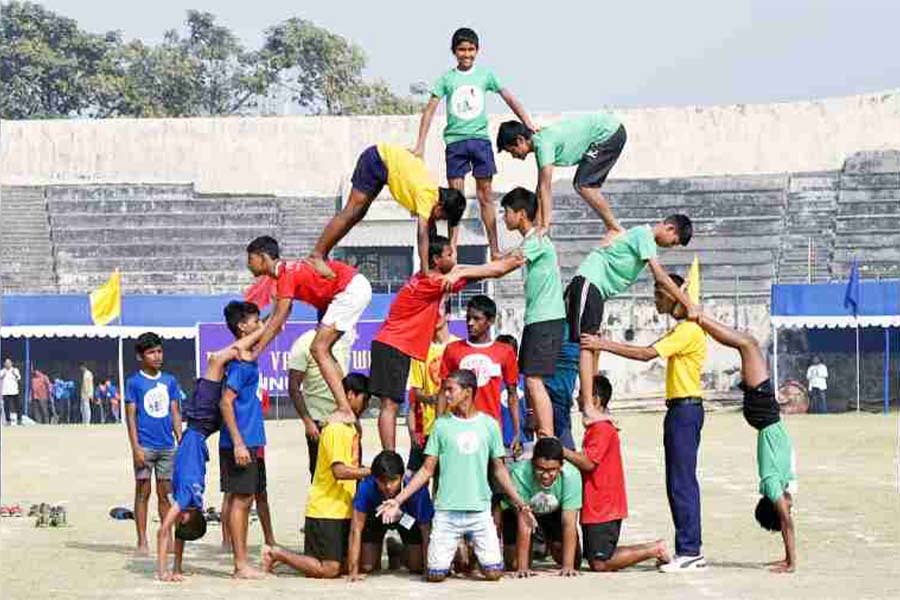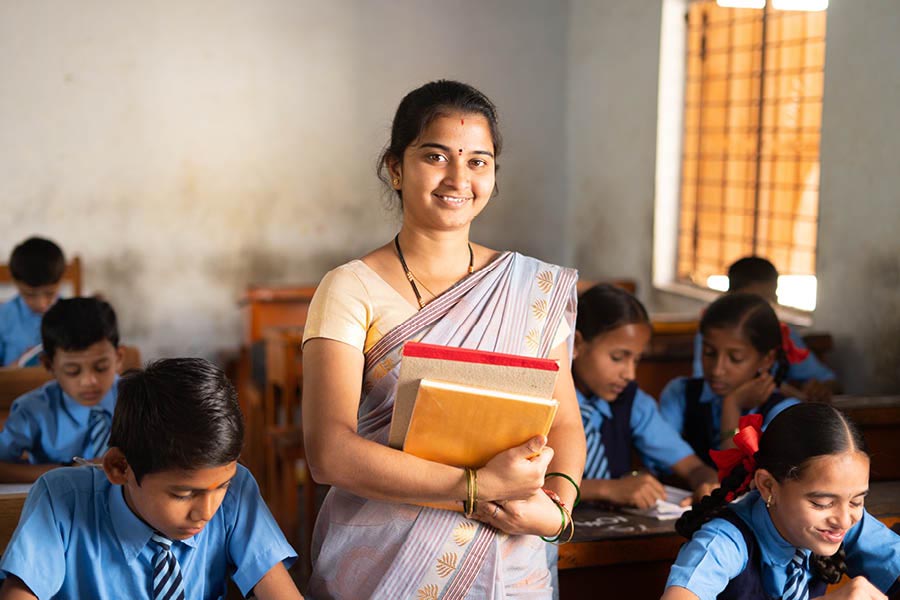We’ve been unfurling the Indian Flag quite a bit in the last couple of months. Six medals in the Summer Olympics, then Independence Day and more recently, 29 medals in the Paralympics. While we all rejoice in these successes, there will be a bunch of naysayers who will keep creating and sending memes on WhatsApp. One such meme rues the dearth of medals with the caption: “How can we aspire to medals in the Olympics with one period of forty minutes a week devoted to physical education in our schools?” Others are quick to add that we have just one “singing class” and possibly no dance classes in a week! And suddenly, schools are at the receiving end of the blame game. A small voice might even chime in that most of the medals are probably won for sports and games not taught in our schools — archery, shooting, weightlifting (not the schoolbag variety) and wrestling. You might even add hockey to that list, at least in most Kolkata schools. Some of life’s most important skills can be taught through team games — working together, healthy competition, reaching immediate goals, dealing with defeat, building courage and even heeding the referee!
We also know that most families will try to have a musician or dancer in the family, sending them for special classes till the Numbers Game takes over from the rhythms and taals and harmonious living is only possible if academic grades are scaled up; while music is downscaled. “Every child deserves a device in school, and that device should be a musical instrument” — says one meme. “If you want your child to become a scientist, teach them music” — says another. Similar sentiments link music to brain development, while we know that music and maths are intricately linked.

Like the meme goes, “Every child deserves a device in school, and that device should be a musical instrument” TT Archives
And so, in order to invest in a holistic education, parents are pressed into a pick-up-and-drop existence. Drop the children to school, pick them up, drop them at tuition, pick them up, drop them to the music teacher, pick them up, drop them off for football coaching, pick them up. You get the drift… If the economy doesn’t pick up, at least the parents are doing some of the picking up. And picking up the monthly expense tab is a given. Wouldn’t it be lovely, if all this holistic education could happen under one roof?
At a recent seminar in a city hotel, I witnessed a set of erudite educationists, psychologists and sports persons discuss the challenges of the Attention Economy in Education — the basic definition being that one needs to manage capturing attention, which is seen as a limited resource, getting more limited by the distractions that abound, most of them on your mobile phone. To be fair, one of the speakers admitted that he had to use Artificial Intelligence to find the meaning of the term. But we know Attention Economy as every teacher’s perpetual complaint to parents: “he needs to concentrate” or “she has to learn to pay attention”. Richard P Feynman, the Nobel winning physicist, famously said, “Knowledge isn’t free. You have to pay attention!”

We know Attention Economy as every teacher’s perpetual complaint to parents: “he needs to concentrate” or “she has to learn to pay attention” Shutterstock
The same evening, a world-class Indian cricketer was interviewed and asked his views on the Attention Economy, amidst delightful stories of his past. He had this to say. Schools fail students. There is an absolute level called a “pass mark” that everyone has to achieve in all subjects, regardless of their interests in life or studies. In sports, by contrast, there is no failing — there are good days and bad days, but you always bounce back to try again. Eventual success is not time bound and does not have to be achieved at term exams. I found this a revealing insight. Imagine if our kids could choose, from an early age, the kind of education they wanted — a sport of their choice, a basic set of life skills like reading, writing and arithmetic, a musical instrument, a dance form, painting, theatre or any of the performing arts. Imagine if they went on to excel in any of those disciplines, win trophies, and earn a living off it. Would we still want them to “complete their education” in physics, chemistry, accountancy, commerce, or computer science? Would we be surprised if they were not obsessed with distractions and overuse of screen time? Imagine if we had to remind them to come for dinner because they’d be practising the sitar for hours on end, or putting finishing strokes to a masterpiece. Imagine if they turned out successful and balanced in life, despite everything they haven’t learnt.

Imagine if our kids could choose, from an early age, the kind of education they wanted — a sport of their choice, a basic set of life skills, a musical instrument, any of the performing arts. Imagine if they went on to excel in any of those disciplines, and earn a living off it Shutterstock
At the seminar, we discovered that there were institutions devoted to increasing a child’s concentration and attention span; there were also institutions that focussed on providing a plethora of educational choices — including academic prowess, sports, games and performing arts. There are schools (albeit outside our city) where a six-day week has four days devoted to sports training and two days for academic classwork. “Shocking!”, I hear you cry. Not as shocking as the growing piles of CVs of Post Graduate Diploma holders and engineers applying for clerical jobs with the Government. These new schools have the logistical nightmare of finding coaches and teachers for different disciplines, providing individual attention and even rating the students on their progress. But it surely takes a load off the pick-up-and-drop for parents while providing the canvas for painting new dimensions to a child’s personality.
While we cheer the Indian successes at the Olympics and Paralympics, let’s permit a sobering thought or two. Most of the established schools do not encourage students to take up competitive and individual sports like swimming, tennis, archery or rowing — it’s not on their syllabus! And an overwhelming number of schools don’t even admit differently-abled students to their hallowed portals.


